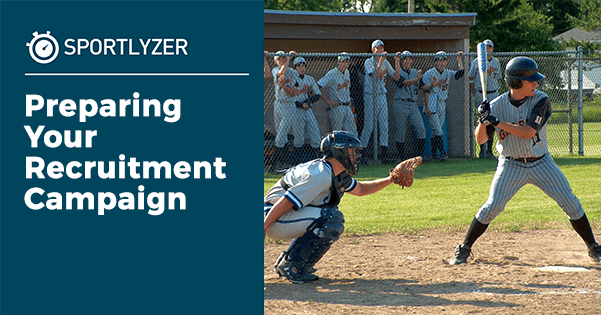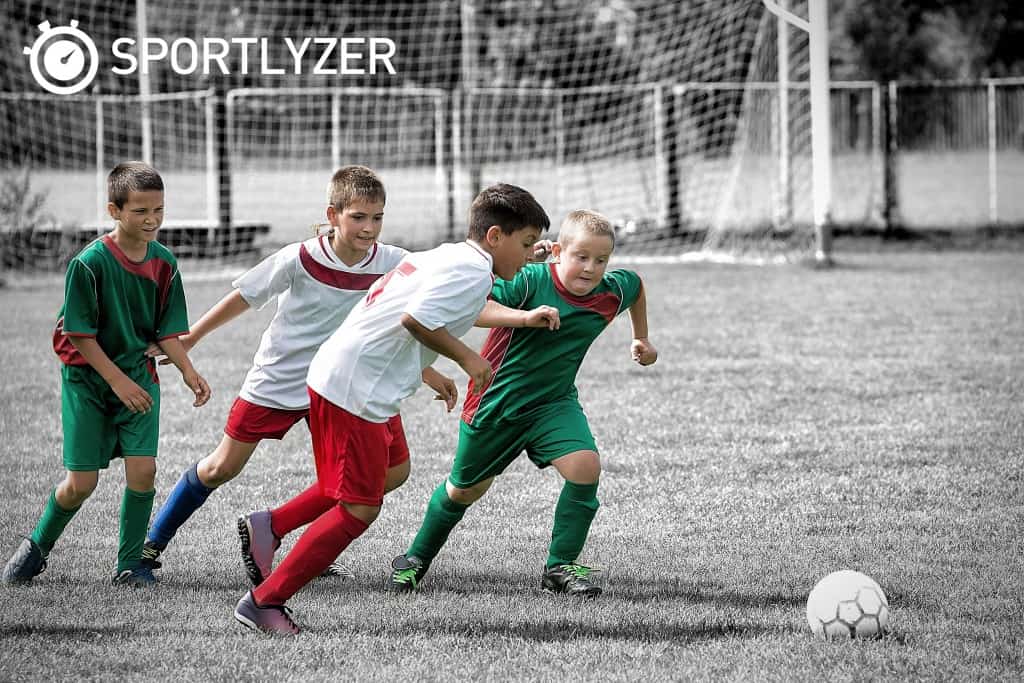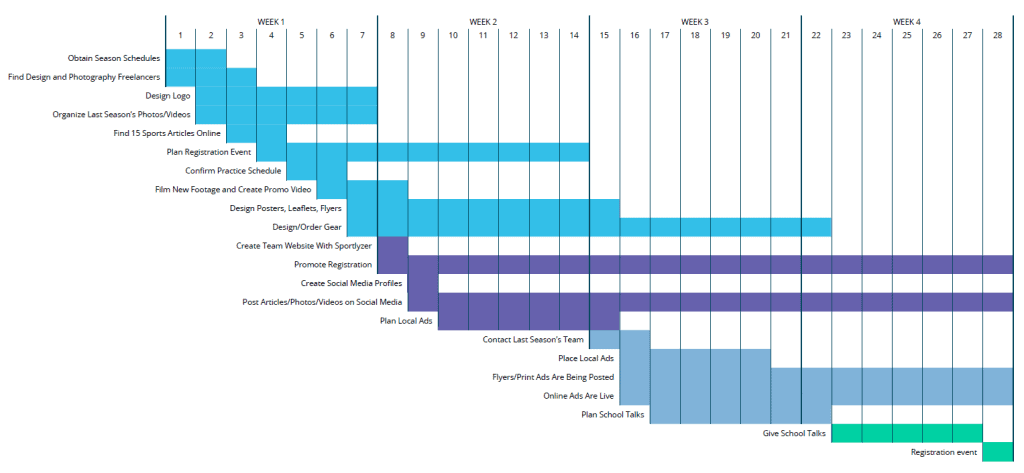Preparing the recruitment campaign
We welcome you to the first in our series of posts designed to guide you through a successful recruitment campaign this sports season.

Success in any endeavour – winning that cup game, pulling off a fantastic training camp, or achieving that elusive personal best race time – relies on solid preparation. The same is true when you’re planning a new recruitment campaign.
Pulling in new recruits and welcoming back existing members is an exciting but stressful time of the year. With a well thought-out plan and proper preparation, your recruitment campaign will exhibit a professional and passionate team image, engage athletes, families and get everyone excited about the upcoming season.
You will get the most from your recruitment campaign if you lay the groundwork now, and follow our preparation checklist to get you ready for kick off.
1.1 Create a season schedule
1.1.1 Confirm game and practice schedules
To create your season schedule, you’ll need to know dates, times and locations for games and practices. Creating this schedule with key team members gives ownership, and shows the club or team ethos of working together with coaches, volunteers and athletes. Eliminate unnecessary last-minute changes with a season schedule you can share with athletes and their families.
1.1.2 Begin planning registration events
Registration events also need to be added to the schedule, so start to think about the events you plan to run for newcomers. We will cover this point in more detail in a later post to help refine your thinking. When and where will you hold them? Is pre-season the best time to start, or shortly after regular practice resumes? How can you make these events creative, appealing and fun?
1.2 Optimize your website
1.2.1 Prepare coach profiles
A fantastic club or team website is essential. Over 87% of Americans use the internet regularly, but this number is topped by an amazing 97% of youth and young adults with ready internet access. A well thought-out website converts potential newcomers by sharing the story of the club or team, the passion of the coaches and the energy of the existing athletes. Expensive design features are not as important as up-to-date and curated information. Our next post in the series will talk more about your club website, but in the meantime you can begin preparing coach profiles. This should include bios, photos, contact info and certifications. Preparing this now will get your campaign off to a great start.

1.2.2 Gather high-quality photos and videos
A picture is worth a thousand words. Find a volunteer to take photos of coaches and players, action shots and images of the training facilities. Ensure that they’re high resolution and a suitable size for your website and social media platforms. Also gather high-quality photos and highlight videos of previous seasons.
1.2.3 Create a club logo
If you don’t have one already, launch a design contest through 99designs to get a club or team logo. Ensure the size, resolution and look are suitable for print and web use, in merchandise, kit, on the website and social media.
For your logo to look its best, you will need it to be in ‘vector’ format (such as .eps, .ai, .svg). This means it can be scaled up or zoomed in without losing quality (unlike a .jpg or .png, which will look terrible if scaled-up). Make sure the designer delivers you a ‘vector’ format logo.
When you want to print some shirts or posters, usually you can send your vector logo to the printers and they will place it where you ask them. Don’t try to print .jpg or .png. It will look very bad.
If you want to create an icon for social media use, you will need to save your vector logo as a bitmap file (such as .jpg or .png) at the required sizes of the social media website (for example, Facebook requires a 180×180 pixel image for profile image). When you make your social media icon, be sure to leave a little margin around the logo so it doesn’t look squashed.
Important reminder: Always keep a vector version of your logo as a back-up. All the versions of the logo that you will need can be exported from the original vector file and saved as a new file.
1.3 Prepare to promote
1.3.1 Write your story and tagline
With basic building blocks in place, you can get ready to really up sell the story of your club or team to newcomers and to reignite the passion of existing members for the new season. What is special about your club or team? Use the time you have now to think and talk to coaches, athletes, volunteers and parents. Create a script that tells your story. Do you consistently develop champions? Are your coaches the most experienced in town? Do you have a killer location? Is your focus on athlete inclusivity? Try to create a short paragraph that explains why everyone loves the club or team, and reduce this to a team tagline for promotional purposes. Think of it as your elevator pitch.
1.3.2 Create promotional materials
Promotional materials can help boost the visibility of your club or team. Design an informational flyer and leaflets for web and print use. If you have willing volunteers, create a promotional team video for your website and social media channels.
Capture the spirit of the club or team through t-shirts or other merchandise. Create fantastic merchandise with help from 99designs, which also offers a t-shirt design service. Ask designers to come up with t-shirts that prominently display your club logo and tagline, and talk to your team, or use a tool like SurveyMonkey to allow parents and athletes to vote for their favorite designs.
Incorporating your club logo and tagline on your merchandise creates a unified team identity. All you need to do now is to encourage your club members to wear their t-shirts to increase the visibility of the club or team during the recruitment period.
1.3.3 Curate content
Finally, select 10-15 great, recent sports articles that are worthy of sharing with parents and players. You will use these to create online conversations later, so ensure they represent the ethos of the club or team appropriately. Sharing great content with your community is a great way to start a conversation. Research shows that 76% of non-profit organisations successfully use content marketing in this way to engage and inspire.
Summary
These simple steps lay the foundation for a considerable recruitment campaign — and a successful season with valuable players. Your marketing campaign will build relationships with team members and their families, help secure the parental support you need to make the season run smoothly, and open your athletes up to the whole exciting world of possibility that lies ahead.
What’s next?
In the next post, we go through how to create and optimize your club website to attract new potential players to your club.
Downloads
Get the full e-book from here: Promoting a youth sports club
Related posts in the series
1. Preparing for the recruitment campaign (current article)
2. Create and optimize club website
3. Effective advertising campaign
6. Final outreach + registration
Sportlyzer is an award-winning team management software for youth and amateur sports. Log in or sign up now!




